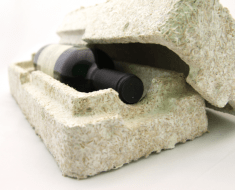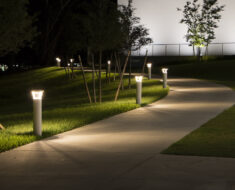
It becomes vital to choose the right type of solar panels when you want to harness long-term benefits associated with renewable energy for your home while going solar. Initially, this decision would seem too broad; however, once we take into account certain important aspects, we will be able to know whether that choice is appropriate to our necessities and needs. For instance, when going for the cheap and green panels available in the market, it’s important to bear in mind considerations such as longevity, maintenance, size, and the manufacturer as they can offer you optimum efficiency and savings over several years. Installed correctly, such a system can help cut the environmental impact, make the house more valuable, and offer cheap, reliable energy for the lifetime of the system. This paves the way for tomorrow’s solar-powered world.
Factors to Consider When Selecting Solar Panels System
When choosing solar panels for home, several factors are important to consider:
Efficiency: the efficiency of solar technology, refers to the amount of sunlight a solar panel can absorb and turn it into usable energy. Efficient panels mean that fewer panels are necessary for your house. Yet, more powerful energy-efficient technologies tend to be relatively more expensive. Decide on your budget and space as well as the efficiency needed.
Panels Wattage: It is important to know the basics of solar panels wattage when choosing solar panels. This means of measurement is expressed as watts (W) or even kilowatts (kW), which shows the power output of the solar panel. It is also referred to as peak efficiency and it specifies how much energy a panel yields at maximum temperature and irradiance.
Cost: Solar panel installation costs and the price of solar panels are considered as the initial cost of solar panels. Even though prices for solar panels have gone down tremendously over the past few years, these devices remain a large expenditure. The total cost of its acquisition and installation remains high – $ 15,000-25,000. Search for recent price tags of an appropriate installation plan for your energy requirement. Also include estimates of potential energy bill savings as well as tax incentives that can help with offsetting costs.
Weather-resistance: Choose panels used for outdoor illumination that can withstand heavy snow, high winds, or hail if you reside in an area with extreme weather conditions. In this case, weather-resistant panels would be more expensive but do a better job of lasting.
Appearance: Traditional glass panels or low-profile thin-film panels may be selected if the appearance of panels on your roof matters a lot. The new, frameless designs are also visually appealing. Modern technology makes it possible to create solar panels of various shapes and sizes. Think of how visible your roof is so that you can decide whether a panel appearance is needed or not.
Solar power can be used for small houses or tiny houses, as well as for huge dwelling places. Think about how easy it would be to install and what kind of mounting system would be needed. Different types of roofs may call for specific panels or methods of mounting.

There are primarily three types of solar panels available in the market:
- Monocrystalline Solar Panels: The monocrystalline panels have an efficiency that is averaged between 15% and 22%. They are also strong and enduring and often carry warranties of 30 years or so.
- Polycrystalline Solar Panels: Monocrystalline panels are more efficient than polycrystalline panels, which have a typical efficiency of 13-16%. They are cheaper in production and hence affordable.
- Thin-Film Solar Panels: Thin-film panel efficiency is relatively low (between 7% and 13%). They are highly portable and adaptable so it is possible to set up the units at different locations and even on curved surfaces.
Key Considerations for Outdoor Illumination
- Luminosity Requirements: The necessary level of illumination for different outdoor lighting setups varies.
- Battery Storage Capacity: A reliable battery storage system is important for outdoor lighting. This enables the storage of energy during the daytime for lighting at night without sunshine.
- Location and Sunlight Availability: The efficiency of solar panels is largely affected by the place where they will be mounted. Estimate the solar power potential by evaluating the sunlight exposure of the site during various days and seasons.
Top Solar Panel Brands on the Market: Compare the Best Options for Your Home
Two essential factors to consider when deciding on a solar panel system for your home are the specific brand of the solar panel and the type chosen. It is important to research and work with the local reliable best solar companies when starting a journey to solar energy. For example, in the case of Minnesota and seasonal changes with extreme weather conditions, working with solar experts who know the peculiarities of that area will be important. Customized solutions are available through local companies considering factors like the weight of snow, temperature changes, and suitable location to maximize the intake of sunlight. Modern solar panels in Minnesota can be efficient enough to absorb even low levels of sunlight that are characteristic of less constant sunlight throughout the year.
Several well-known solar panel brands offer varied levels of performance and prices. Taking the time to assess the warranties and specifications offered by various brands and models available in the market will go a long way in determining the best option for your household and energy.
- SunPower: SunPower is a leader among top solar companies. Produces some of the best and longest-serving solar panels available. The power output of up to 360 watts per panel is offered by their x-series panels coupled with a 25-year power and product warranty. Nonetheless, SunPower panels are much more expensive than other equal panel types.
- LG: LG is known to be one of the market leaders in highly efficient solar panels. They enjoy a great reputation for their excellent and dependable performance, and for great financing options. Their NeON series provides up to 370 watts with a 25-year warranty. This is a premium brand and usually, they sell a little bit higher on average.
- Panasonic: The solar panels manufactured are of high quality with good power output capacity and efficiency rates. The company’s VBHN has up to 330 watts per panel and a 25-year warranty. Panasonic panels are known for reliability and longevity, though prices tend to be slightly above average.
To Sum Up, solar panels bring many benefits to homeowners. When it comes to deciding on the most suitable solar panel type for your home use, you have to balance what matters most to you in terms of performance, esthetics, and affordability, and select the one that meets all these needs in the best way possible. Take time to make sense of the differences in efficiency, durability, appearance, and initial cost of each type of panel. Ask local installers for customized estimates. Remember also, that technology and costs in the solar industry keep improving. What makes the best sense today may be different in a few years. Properly installed solar panels on your roof will lead to energy bill savings and green power for years to come.







